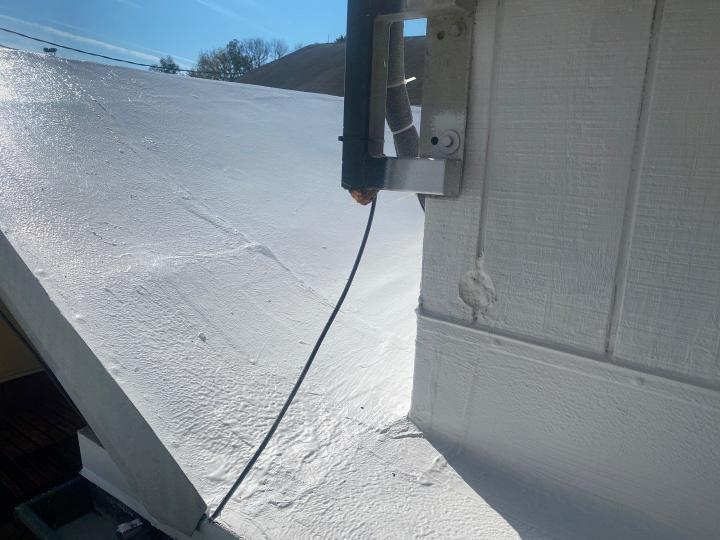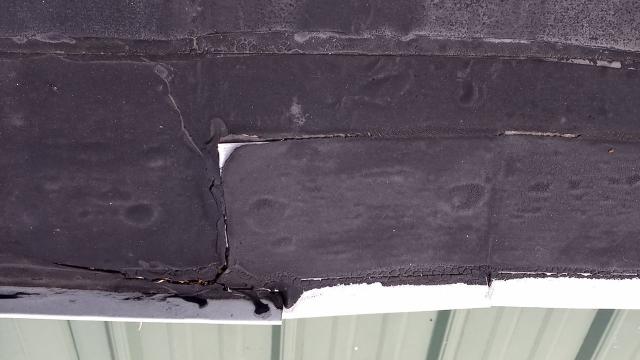- By admin
- Uncategorized
- 0 Comment
Service and Maintenance Plans to Maximize your Roofs Lifespan
Owning a commercial property involves numerous responsibilities, with maintaining the roof being one of the most important tasks attached to building ownership. Your roof, which can often be overlooked (out of sight, out of mind!), is a vital component that ensures the safety, efficiency, and aesthetic appeal of your commercial property. In this comprehensive guide, we will look into the nuances of commercial roof maintenance, its benefits, and the impact it has on the lifespan of your roofing system.
What Maintenance Should Be Done on a Roof?
Maintaining a commercial roof requires a strategic approach that encompasses a variety of tasks, each critical for the roof’s overall health and longevity. The first line of defense is routine inspections. Conducted at least bi-annually, these inspections are vital in detecting early signs of wear and tear, potential leaks, or structural issues. Experienced professionals can identify problems that might not be obvious to the untrained eye, such as small punctures in the membrane, weakened seams, or compromised flashings.
In addition to inspections, regular cleaning and debris removal are essential. This involves clearing the roof of leaves, twigs, and other debris that can accumulate over time, especially after storms or high winds. Debris can block drainage systems, leading to standing water and potential water damage. Ensuring that gutters and downspouts are clear is also crucial to prevent water buildup and the associated risks of leaks and structural damage.
Additionally, as mentioned in our previous article “How to Ensure your Roof is Ready for Winter”, small debris that’s not properly cleared from the roof can slowly puncture the roofing membrane as the weight of snow and ice continually presses against the debris over time.
Repair work forms another cornerstone of roof maintenance. Addressing minor issues like sealing small cracks, repairing punctures, or replacing worn-out flashings can prevent these problems from turning into major repairs. This proactive approach to maintenance not only extends the life of the roof but also maintains its integrity against the harsh environment.
Finally, preventive measures, such as the application of protective roof coatings or sealants, are important. These treatments can enhance the roof’s resistance to UV rays, weather extremes, and general wear, thereby prolonging its lifespan. Regular maintenance also ensures compliance with warranty requirements, which often stipulate that the roof must be properly cared for to remain valid.
In summary, comprehensive roof maintenance encompasses regular inspections, cleaning, timely repairs, and preventive treatments. These practices form the foundation of effective roof management, ensuring that the roof continues to function as a vital protective layer for the commercial property.

What are the benefits of Regular Commecrial Roof Maintenance?
This begs the obvious question, ‘what am I getting from a regular maintenance program?’ Besides the answer everyone expects, which is a longer-lasting roof, there are other benefits that are worth highlighting. In fact, regular maintenance of a commercial roof brings a multitude of benefits that go beyond simply longevity. Although concerning longevity, it is still worth highlighting again that through routine inspectings and timely repairs, minor issues can be addressed before the become major problems, preventing premature deterioration. The proactive approach is proven to significantly delay the need for a costly full roof replacement; which means long-term savings!
Given a Proper Maintenance Plan, What is the Useful Life of a Commercial Roof?
Assuming a proper service and maintenance plan is in place, let’s take a look at some lifespan averages of typical commercial roof styles.
Of course these lifespan expectations are just averages and will vary significantly based on several factors, including the type of roofing material used, the quality of installation, the environmental conditions, and the regularity and thoroughness of maintenance. Generally, commercial roofs can last anywhere from 20 to 50 years, but this range is obviously influenced by roof type.
For instance, single-ply membranes like Thermoplastic Polyolefin (TPO) and Ethylene Propylene Diene Monomer (EPDM) typically offer a lifespan of around 20 to 30 years. These materials are favored for their balance of affordability and durability, making them a common choice for many commercial buildings. On the other hand, metal roofs, known for their resilience and longevity, can last between 30 to 40 years, but also come with their own problems, such as rust and corrosion, poor insulation, and denting to name a few. Metal is often selected for its ability to withstand harsh weather conditions and its fire-resistant properties. It’s a popular roofing material in the southern part of the US.
Built-Up Roofs (BUR) and Modified Bitumen, older, more traditional choices for flat roofs, have a life expectancy of about 20 to 30 years. These roofing systems are known for their multi-layered protection, offering a robust defense against leaks and weather-related damages, but also have their drawbacks and are being ‘usurped’ so to speak by PVC and TPO roof types.
The longevity of a commercial roof is not just a matter of material choice; environmental factors also play a significant role. Roofs in areas with harsh weather conditions, such as extreme heat, cold, or frequent storms, may experience accelerated aging. Talk to a good licensed roofing contractor and continue reading our articles to gauge which roof type is right for you!
In conclusion, the useful life of a commercial roof is a product of material quality, environmental conditions, and diligent maintenance. Understanding these factors and investing in regular upkeep can help business owners and property managers get the most out of their roofing investment, ensuring that it remains a reliable and functional asset for years to come.

It's difficult to impossible to really ascertain the health of your roof without getting up close and personal via routine inspections!
Key Elements of a Proper Commercial Roofing Maintenance and Service Plan
Commercial roof maintenance and inspection plans typically involve regular inspections, maintenance, and repairs to ensure the longevity and functionality of a commercial building’s roof. Here are some of the key aspects to make sure your roofing contractor includes in the plan:
- Regular Inspections: Commercial roof maintenance plans often include scheduled inspections. These inspections are crucial for identifying potential issues early, such as leaks, cracks, or wear and tear. The frequency of inspections can vary, but they are usually conducted at least annually.
- Preventative Maintenance: This includes tasks like cleaning gutters and drains, removing debris, checking and sealing flashings, and ensuring that rooftop equipment is properly secured. Preventative maintenance helps to avoid larger, more costly repairs down the line.
- Repairs: When issues are identified during inspections or between them, timely repairs are critical. This can range from patching leaks to replacing damaged sections of the roof.
- Documentation and Reports: Service plans should include detailed reporting on the condition of the roof, the work performed, and recommendations for future maintenance. This documentation is valuable for record-keeping and planning budgets.
- Priority Scheduling: While most commercial roofers aren’t going to be available 24/7 in the event of emergency events, many plans offer priority scheduling for unexpected issues like storm damage. This ensures that the roof is repaired quickly to prevent further damage to the building.
- Warranty Support: If the roof is under warranty, maintenance plans often include services to ensure compliance with warranty requirements, which might involve specific maintenance or repair protocols.
- Customization: Commercial roof maintenance plans can often be customized based on the type of roof, the age of the building, geographic location, and specific business needs.
Commercial Roof Maintenance and Service Plans Serving Lancaster, PA and the tri-state area
Investing in a thorough and consistent maintenance plan for your commercial roof is not just about repairs and inspections; it’s about securing the future of your business. Regular upkeep saves money in the long run, enhances safety, and ensures that your building remains a reliable, professional space. Remember, the roof is as significant as the foundation when it comes to the integrity of your commercial property.
Don’t wait for a leak to think about your roof. Contact J Smucker Contracting today to explore our comprehensive roof maintenance programs, tailored to keep your business secure, efficient, and aesthetically pleasing year-round.

